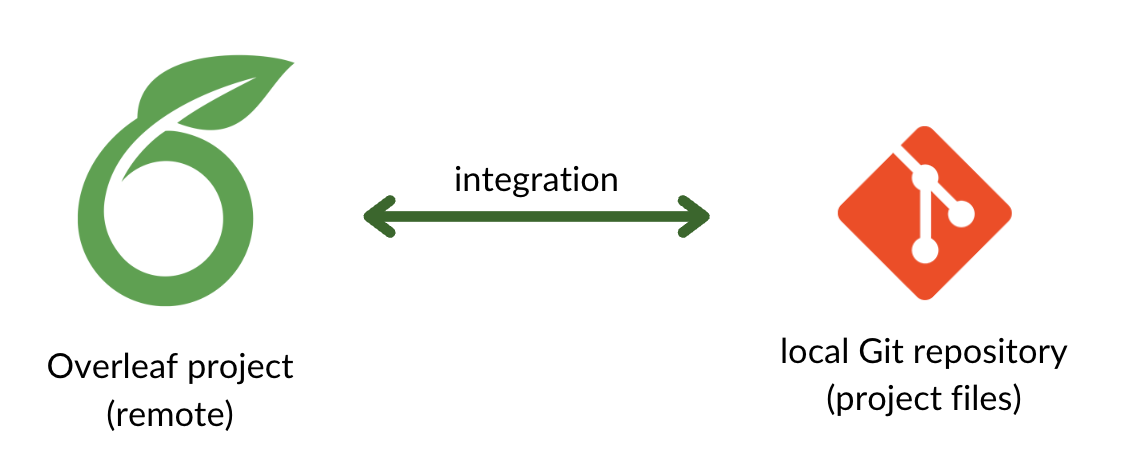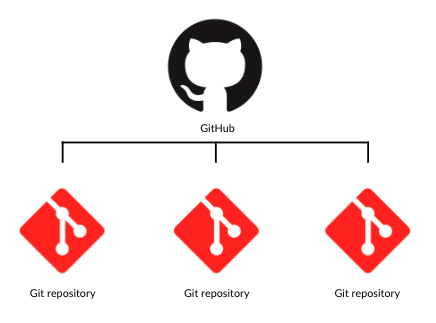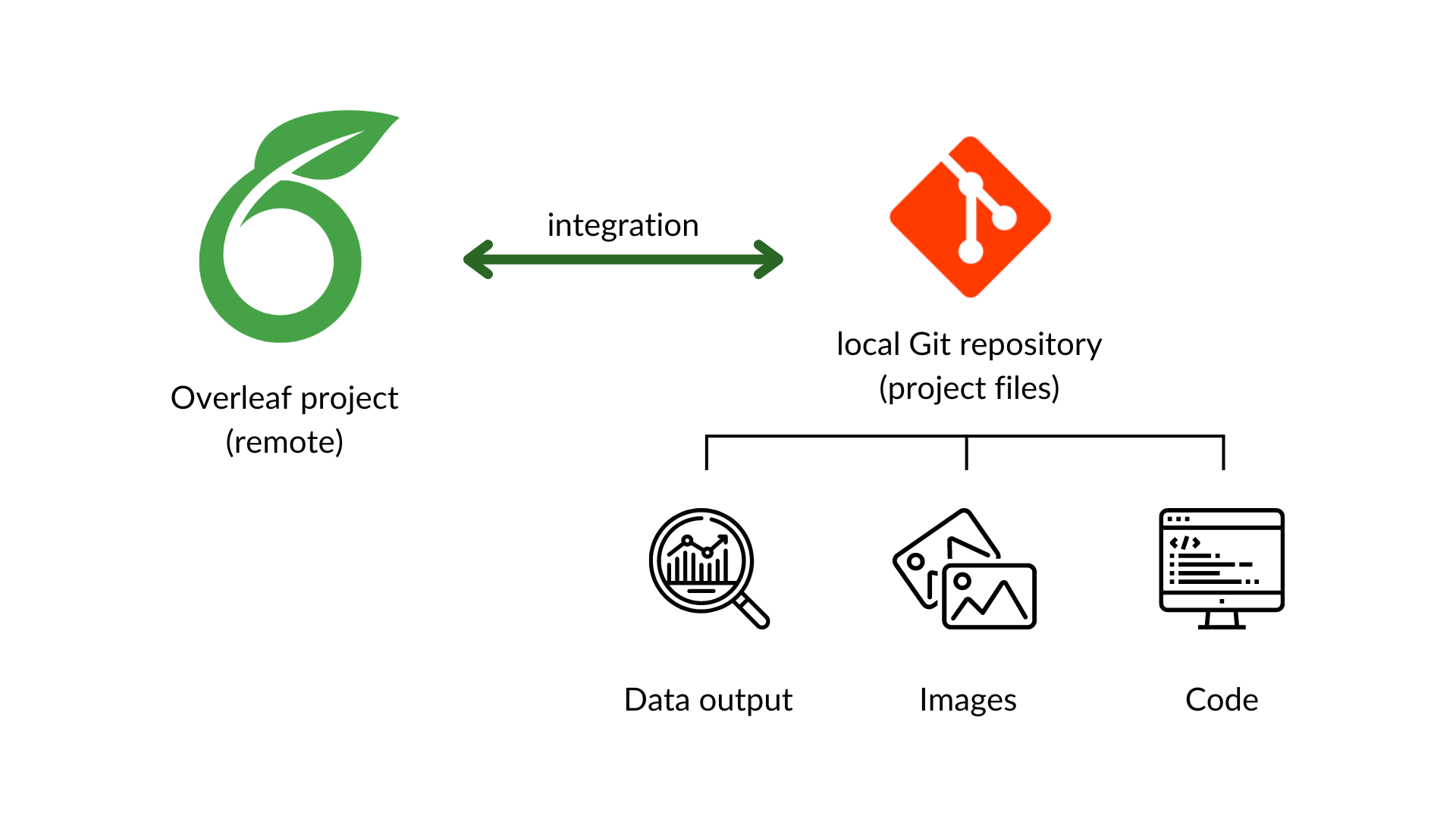Creating connections using Overleaf’s Git Integration and GitHub Synchronization
May 30, 2023Overleaf’s Git integration and GitHub Synchronization give you powerful and flexible ways to work with your Overleaf projects. These features enable you to work offline, collaborate with non-Overleaf users using local LaTeX editors, and bring in and easily update research outputs/artifacts into your Overleaf project via Git.
We just added Git integration to our on-premises solution, Overleaf Server Pro (version 4.0), so now seems like a great opportunity to highlight what’s possible with these features.
What is Git?
Git is a distributed version control system that tracks changes in any set of computer files. Overleaf's Git integration is a premium feature that allows you to clone your Overleaf project to a local Git repository, treating your Overleaf project as a remote Git repository that changes can be pushed to and pulled from.

What’s the difference between GitHub and Git?
Git is often mentioned in the same breath as GitHub, but these are two distinctly different things. Simply put, Git is a version control system that lets you manage and keep track of your source code history. GitHub is a cloud-based hosting service that lets you manage Git repositories. There are other Git hosting solutions, but GitHub is a very popular one.
A direct GitHub Synchronization is available as a third-party integration on our Overleaf cloud solution, but isn’t available for Server Pro.

What can you do with our Git integration?
For both Overleaf cloud Premium users and Server Pro users, Overleaf's Git integration can enable a wide range of ways of working with Overleaf. Here are just some of the things that the Git integration allows you to do:
Work offline. You can create a local repository that uses the Overleaf project as a remote. This allows the user to pull from the Overleaf project and push updates to the project.
Bring in research outputs from other tools. When you need to bring in data from other tools like R Studio, Jupyter Notebooks, MATLAB, Mathematica, and more, Overleaf's Git integration allows a more seamless and flexible workflow between what you have in your Git repository and your Overleaf project.

Synchronize with another remote repository. You can set up a local repository that connects to your Overleaf project using the Git integration and to another repository that is set up as a second remote. This allows you to keep your Overleaf project synchronized with a repository hosted on GitHub, GitLab, or other hosting service.
Use a locally installed LaTeX editor. Overleaf's Git integration facilitates using a locally installed LaTeX editor, when preferred by you or a collaborator, or when workflow or accessibility requirements make it beneficial.
Read more about using Git with Overleaf
Want to get started with Git and Overleaf?
First, make sure that you have an account with access to premium features or are using Server Pro 4.0 or later. If you don’t have access, you can review our student, individual, and group plans, or make a request at your institution or company to purchase a subscription.
Then check out our guide to learn how to get things set up, read details about features, and more.
